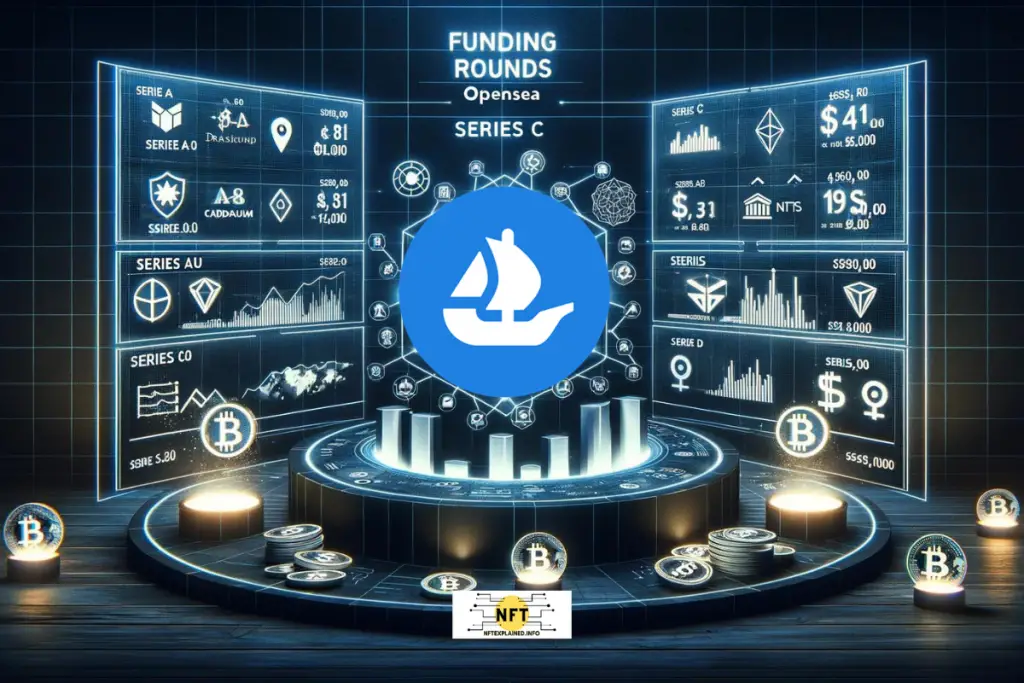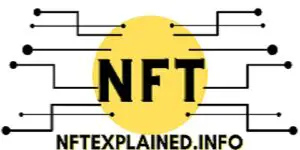
OpenSea is widely regarded as the most trusted and well-known NFT marketplace. It has earned the confidence of buyers and sellers for a myriad of reasons, including its user-friendly interface, and extensive selection of digital assets across a number of different chains.
OpenSea launched in 2017 and announced a $2 million round from Founders Fund and other crypto-centric firms a few months later. In 2021, they closed a $23 million round led by Andreessen Horowitz, followed by a $100 million Series B round also led by Andreessen Horowitz. Later, OpenSea secured $300 million in Series C funding at a $13.3 billion valuation, led by Paradigm and Coatue.
OpenSea, founded in 2017, quickly capitalized on the CryptoKitties craze by securing $2 million. This early funding was crucial in establishing OpenSea as a leading NFT marketplace. The CryptoKitties phenomenon highlighted the potential of NFTs, attracting significant attention and investment to the space.
In 2021, amongst the first NFT bull market, OpenSea announced a $23 million funding round led by Andreessen Horowitz. This investment marked a significant milestone for the company; this is in part due to the involvement of Andreessen Horowitz, likely the most recognized venture capital firm, which added credibility and confidence in OpenSea’s future.
If you recall using OpenSea back in 2021, you’ll notice substantial improvements to date, including the integration of NFTs from various layer two blockchain networks such as Polygon, Solana, Avalanche, and most recently, Base. These advancements were largely fueled by their Series B funding, which we will examine in detail before discussing the subsequent Series C round.
Inside OpenSea’s $100 Million Series B: Fueling NFT Expansion Via Multiple Chains
OpenSea raised $100 million in a Series B funding round led by Andreessen Horowitz. This significant investment round also saw participation from high-profile individuals such as Michael Ovitz, Kevin Durant, Mark Cuban, and Dylan Field, as well as strategic investors like the Creative Artists Agency (CAA) and investment firms like Coatue Management.
Andreessen Horowitz (a16z), one of the most esteemed venture capital firms, leading this round, is a significant testament to the NFT space and OpenSea’s potential. Having a16z, which manages billions of dollars in assets, spearhead the investment further solidified OpenSea’s credibility.
The involvement of CAA brings a strategic advantage, potentially leveraging their extensive network of celebrities to create and promote NFTs on OpenSea. High-profile investors like Mark Cuban and Dylan Field add further credibility and insight, with Cuban being a vocal supporter of NFTs and Field having bought a CryptoPunk for $7.5 million; which made it on the list of the top 15 most expensive NFTs ever sold.
OpenSea’s Series B Funds: Unpacking the Strategic Growth Plan
While OpenSea is not entirely transparent about how they will use the Series B funding, CEO Devin Finzer has provided important hints and we can examine what has been done to the front end as a user.
OpenSea plans to utilize the Series B funds to expand their team, enhance user experience, and develop new projects. A significant portion of the investment will be directed towards improving their marketplace by integrating with multiple blockchains, aiming to reduce the high “gas fees” that occur on the Ethereum blockchain during periods of high transaction volume.
Gas fees – the transaction costs on the blockchain – are a common pain point for NFT users. OpenSea aims to address this by integrating with more efficient proof of stake blockchains such as Polygon, which has already been added to their platform, significantly reducing transaction costs.
Additionally, OpenSea notably integrated the Solana blockchain, known for its high performance and low fees. These integrations will make the marketplace more accessible and cost-effective for users, promoting wider adoption of NFTs.
One notable recent enhancement is the introduction of a verification system for creators. This step ensures that buyers can confidently purchase original works, knowing they are not replicas or unauthorized copies. Verified creators are indicated by a blue checkmark, improving trust and reducing fraud within the marketplace.
The company’s focus on blockchain integration, reducing gas fees, and enhancing security through creator verification is set to drive substantial growth and user satisfaction. With all these improvements, what else would OpenSea need funding for?
OpenSea’s Series C: Evaluating the $300 Million Investment
At the start of 2022, OpenSea raised its most significant funding round to date, bringing its total to seven funding rounds according to TechCrunch. The valuation from the Series B was just $1.5 billion compared to the series C $13.3 billion the company achieved.
In early 2022, OpenSea raised $300 million in Series C funding at a $13.3 billion post-money valuation, led by Paradigm and Coatue with participation from new and existing investors. The funds will enhance customer support, trust and safety, and site stability. OpenSea also set to launch a grant program to support developers, builders, and creators in the NFT space.
OpenSea in fact is not the only blockchain based firm commanding high valuations. Dapper Labs, the firm behind NBA Top Shot and the Flow blockchain, received a $7.6 billion valuation in September in another round led by Coatue.
Speaking of NBA Top Shots, OpenSea plans to use similar marketing tactics by focusing on a user experience that isn’t heavily reliant on savvy blockchain users. By lowering the barriers to entry for NFTs, they introduce features and simplified flows that abstract away the complexity of the blockchain. An effective approach done by Reddit – which you can learn about here.
Fred Ehrsam, a founder of Paradigm, stated that OpenSea cofounders Devin Finzer and Alex Atallah “have shown true grit over the last four years, weathering uncertainty and sticking to their vision of NFTs as an internet and world-changing primitive.” This confidence in the founders’ vision was a driving factor in the substantial investment from Paradigm.
Despite this impressive funding round, recent developments have impacted OpenSea’s valuation. In November, United States tech investment firm Coatue Management marked down the value of its stake in OpenSea by 90%. According to a document reviewed by The Information, Coatue reduced its investment from $120 million to $13 million, implying an on-paper valuation of $1.4 billion for OpenSea.
This significant markdown highlights the volatility of NFTs and the overall crypto market but with each bull run, crypto asset classes have historically prevailed, and came back even stronger. It also underscores the challenges OpenSea faces as it strives to maintain its leadership position and continue growing amidst fluctuating market conditions.
Nevertheless, OpenSea remains committed to expanding the entire NFT ecosystem. The launch of their grant program this quarter aims to directly support the developers, builders, and creators who are shaping the future of the NFT space.
How Does OpenSea Make Money?
OpenSea currently generates revenue by taking a 2.5% fee from the sale price of each transaction. As the number of NFT transactions has grown, so have the company’s earnings. This fee is relatively low compared to other marketplaces; for instance, traditional auction houses can charge up to 12%, and some NFT marketplaces take as much as 8%.
Given its dominant position in the market, OpenSea is well-placed to explore additional revenue streams. One potential avenue is partnering with high-profile individuals to sell exclusive NFTs – an approach the Binance NFT marketplace has taken through their mystery boxes; more on that here. Such partnerships could command higher commission rates and provide significant marketing leverage for both OpenSea and the featured personalities.
With the substantial capital raised from recent funding rounds, OpenSea is likely to diversify its business ventures. These could include launching new features, developing innovative tools for creators, or expanding into new areas within the NFT ecosystem.
As OpenSea continues to evolve, its ability to generate revenue will likely expand beyond transaction fees, leveraging its market leadership and extensive user base to explore new opportunities and collaborations.
Who Owns OpenSea And Where Is The Company Based?
OpenSea was founded by Alex Atallah and Devin Finzer on December 20, 2017. The privately held company is a peer-to-peer marketplace for crypto collectables and is based in the Greater New York Area.
We hope you are just as excited as we are about NFTs and continue to stay informed at NFTexplained.info. If you enjoyed hearing about OpenSea’s rise, check out more of our content on YouTube!
If you wish to support our educational mission and protect your digital assets, please consider collaborating with our partners by purchasing a Ledger hardware wallet!
